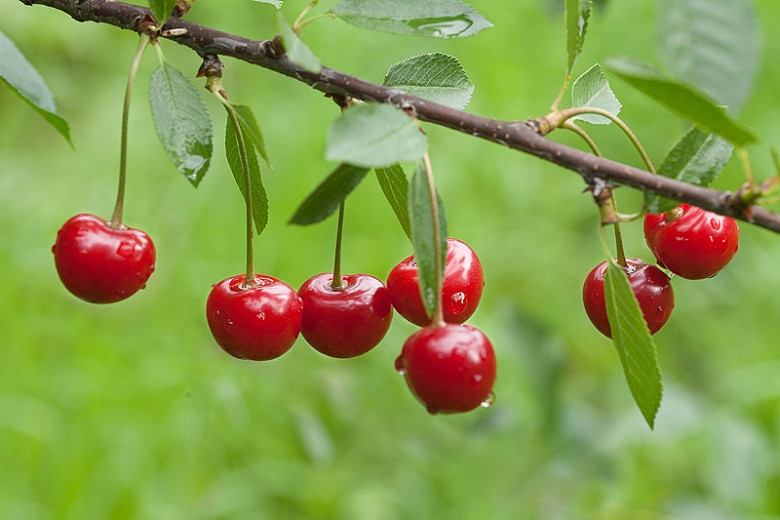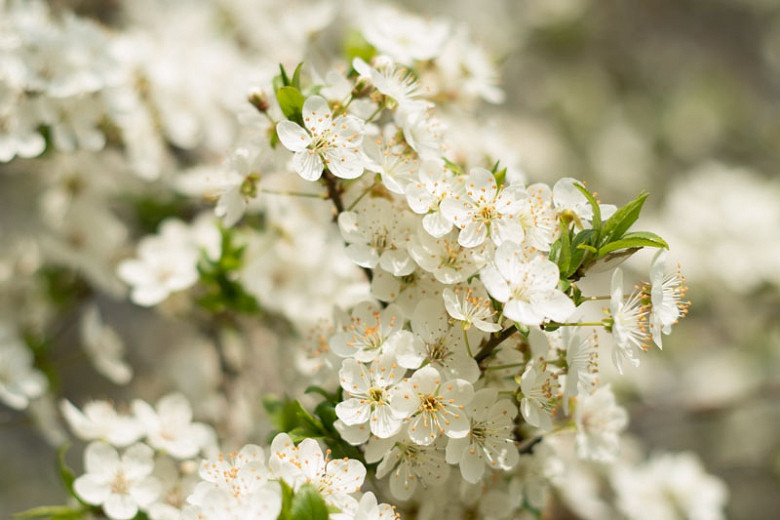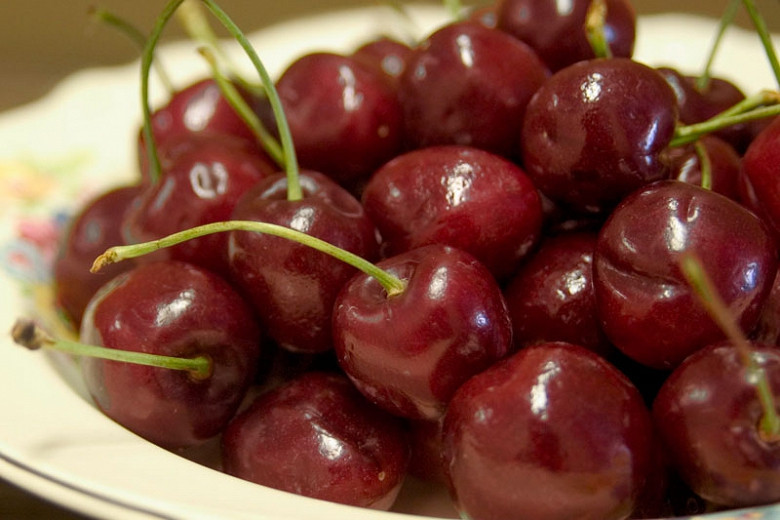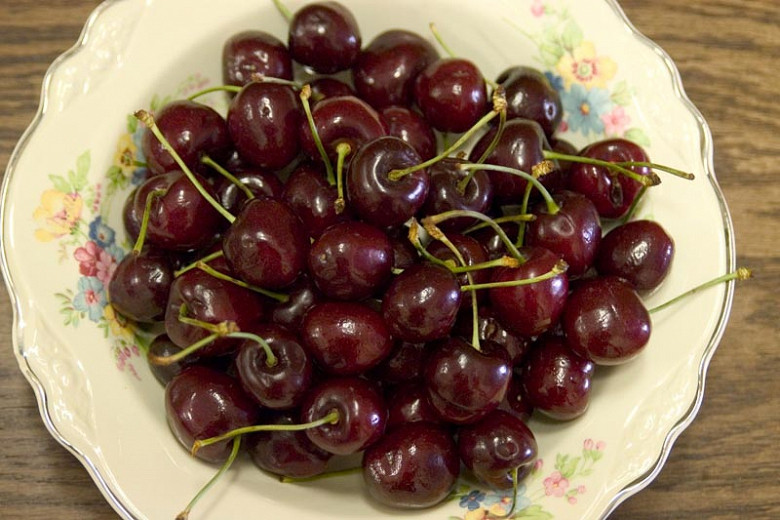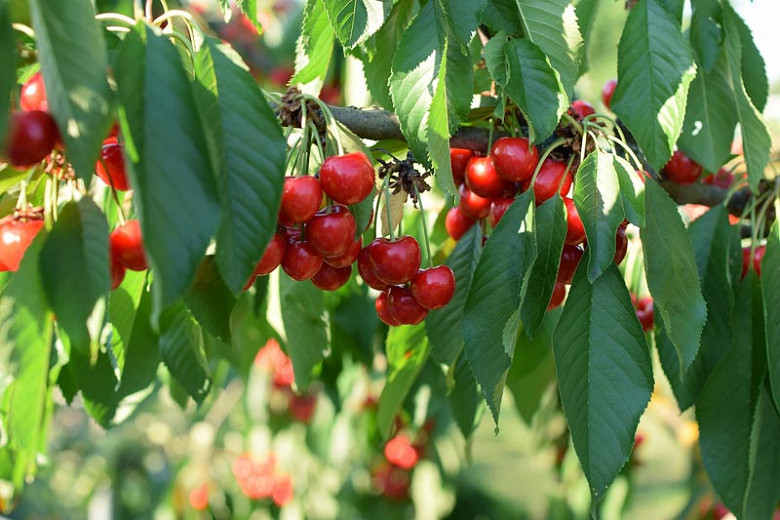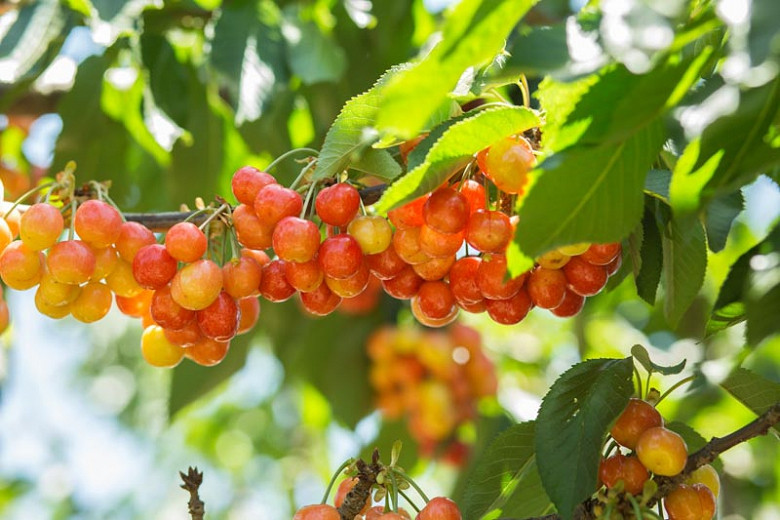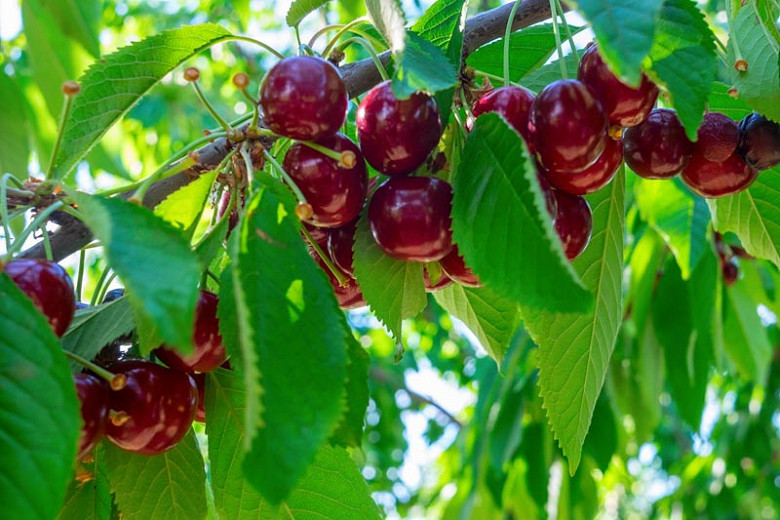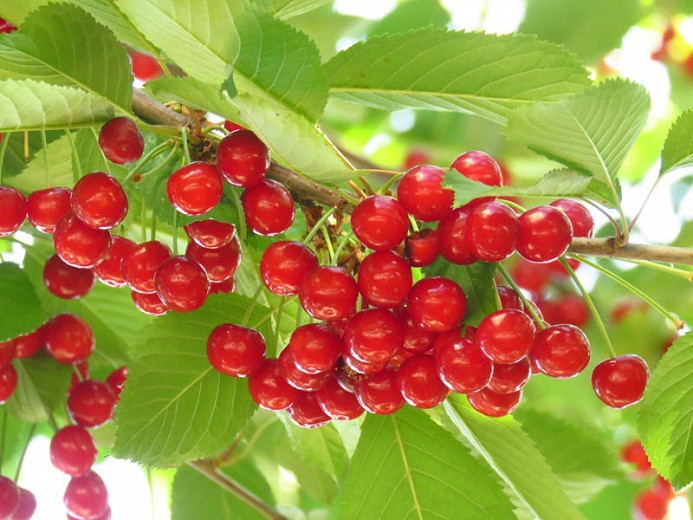Prunus cerasus Montmorency (Tart Cherry)
The most popular sour cherry grown in America, Prunus cerasus 'Montmorency' is a medium to large cherry tree of rounded habit with upright, spreading branches. In mid-spring, it boasts an abundance of white flowers in clusters along the branches. They are followed by a heavy crop of medium-large, bright red cherries with firm yellow flesh in early-mid summer. They have a rich, tangy flavor, resist cracking, and are excellent for pies and preserves. The spreading canopy is adorned all summer long with leathery, elliptic, dark green leaves with pale green undersides. Self-fertile, this cherry tree does not require a pollinator but for better cross-pollination, planting several trees is recommended. The standard for pie cherries, Montmorency is a vigorous, highly productive, and widely adaptable cherry tree for both home and commercial use.
- Grows up to 12-18 ft. tall (360-540 cm) and 20 ft. wide (600 cm) at maturity.
- Performs best in full sun in moist, relatively fertile, well-drained soils. Relatively easy to grow and widely adaptable.
- This cherry tree has a chill hours requirement of 700 (hours of temperatures below 45ºF (7ºC) in the winter for their buds to open in the spring)
- Tart cherry trees need pruning both for training the young plants and for maintaining good yield on mature ones. Train in early to mid-spring and once trained, prune after fruiting.
- Protect from birds that damage buds and eat the fruit. May suffer from aphids, winter moth caterpillars, pear and cherry slugworm, silver leaf, bacterial canker, brown rot, and blossom wilt.
- Propagate by chip budding or grafting on clonal rootstock for fruit.
- Prunus cerasus species is native to Europe and Asia. Occasionally, it forms stands, displacing native species in some areas of the U.S.
- Find where this species is invasive in the United States.
Requirements
| Hardiness | 5 – 9 |
|---|---|
| Heat Zones | 1 – 8 |
| Plant Type | Fruit, Trees |
| Plant Family | Prunus – Fruit Trees, Cherries |
| Exposure | Full Sun |
| Season of Interest | Spring (Mid)Summer (Early,Mid) |
| Height | 12' – 18' (3.6m – 5.4m) |
| Spread | 15' – 20' (4.5m – 6m) |
| Water Needs | Average |
| Maintenance | Low |
| Soil Type | Chalk, Loam, Sand |
| Soil pH | Acid, Alkaline, Neutral |
| Soil Drainage | Moist but Well-Drained |
| Characteristics | Showy |
| Attracts | Birds, Butterflies |
| Garden Uses | Beds and Borders, Wall-Side Borders |
| Garden Styles | Informal and Cottage, Prairie and Meadow, Traditional Garden |
